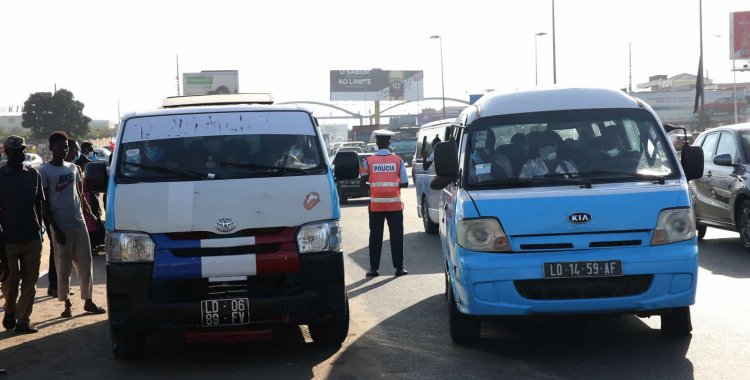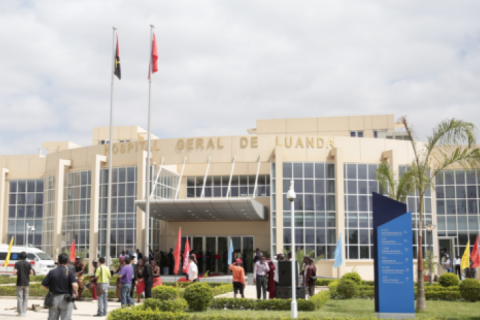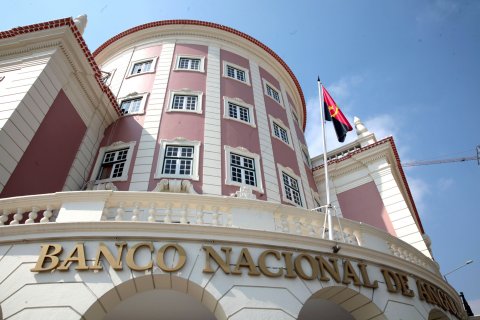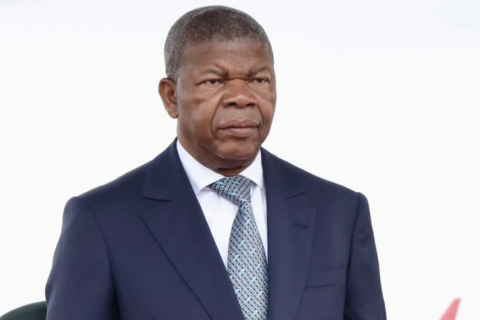Nobody knows exactly how many there are or how much the "blues and whites" bill, as the candongueiros are also known, the popular private collective transport that circulates in all the provinces, ensuring the movement of a large part of the population.
On 10 January, three associations of taxi drivers called for a strike to draw attention to the problems of the class, transforming Luanda into an (even more) chaotic city and generating revolt among many Luandans who could not get transport.
The day was also marked by acts of vandalism that targeted institutions linked to the Government (a building of the MPLA, the ruling party, and a Ministry of Health bus were reduced to ashes) and ended with more than a hundred detainees.
Despite being an informal activity, taxi drivers work according to their own rules, they are organized in various associations and represent the livelihood of many Angolan families.
Each "taxi" or "quadradinho", normally a small van that takes up to 15 passengers, employs at least one driver, a collector and a lottery operator, the name given to the young people who, at stops, attract customers and help to "fill" the vehicle.
The more crowded the taxis, the greater their daily income. Therefore, the candongueiros always follow the rhythm of a fast and nervous driving, aggressively dodging vehicles, pedestrians and other obstacles on the way, trying to make the maximum number of trips per day and superimposing haste to comply with the highway code.
From the early hours of the morning, the main access roads to the capital are filled with cars and people: who wait for transport, who circulate on foot, who do business selling a little bit of everything on the side of the road.
At 6:00 am, the neighborhoods that surround the city have long since awakened. Waiting on Via Expressa, a nerve center for Chinese commerce in Luanda, at the Mutamba stop, is Abel Morais.
The 24-year-old electrician has been patiently waiting for his taxi to Bita Tanque (municipality of Belas) for about half an hour. It will take another hour to get to the place of work, using two transports and part of the journey on foot.
"Between 6 am and 9 am has been a complicated period, it has been a big inconvenience" he tells Lusa, regarding the need for public transport.
As vehicles arrive – taxis, buses or private vehicles – confusion ensues, which sometimes results in conflicts, when passengers jostle and pierce each other in an attempt to take a seat.
Ensuring social distancing in these clusters, as provided for in the measures to combat covid-19, becomes impossible, although the vast majority of passengers wear a mask.
"Unfortunately, there are many gatherings and a greater probability of spreading the virus", acknowledges Abel Morais.
"People struggle a lot to get into the taxi, some are victims of theft, it has been very embarrassing" he continues, reiterating that public transport is "very much needed" to facilitate the movement of the population.
Each taxi is unique and many personalize the vehicle with life mottos, humorous sayings or mentions of neighborhoods and groups, such as the "Placa do 41", driven by Carlos Raul, which in this case alludes to the taxi drivers' meeting place.
He has been a driver for 4 years and last week he had to stop, although he does not belong to any of the associations and that "were fighting for their rights", to prevent the vehicle from being vandalized.
He argues that one of the necessary improvements was the creation of own stops: "We don't have certain stops. Where we try to stop, the police, the traffic regulator is already with you, so it's not possible", he laments, stressing that taxi drivers also pay a fee. traffic and deserve "a little bit of rights" and their own space for their taxis.
The taxi he drives, which goes from the Zango detour to Benfica, transports between 60 and 80 passengers in the 16 trips he makes daily on this route and does not satisfy demand.
"We need more public transport, the demand is still too much", stresses the taxi driver.
Asked if he agrees with the strike, he said that "every demonstration has a purpose". In this case, if the Government accepted the claim book, which includes points such as alleged extortion by the defense and security forces, lack of a professional card, the exclusion of taxi drivers in the executive's policies and the poor state of the roads, it believes that it would be possible to "improve something".
Taxi conductor Cândido Augusto José, 21, felt harmed: "we stopped and that caused us to be in debt with the boss, it was not our intention and we have to return that day we were stopped so as not to cause difficulties with the car", he laments.
On a normal day, a taxi costs between 40,000 and 50,000 kwanzas and can reach 60,000 kwanzas, from which you have to take money for fuel and for the boss, dividing the rest with the driver.
"You can live at the end of the month", but Cândido says that if he could change something in his life, he would leave "this taxi world".
"It's a lot of suffering, you take a passenger who doesn't fit well, you take him out of that place, they want to give you 50, they want to give you 100 (instead of the 150 that the trip costs)", he vents.
António Luís Pedro is one of the hurried lotters who works at the Benfica stop and assumes the dependency of taxi drivers. They are the ones who give him 150 kwanzas every time he fills up the car and they are the ones who guarantee his livelihood.
"We depend on the taxi drivers, if it weren't for the taxi man we wouldn't have any money", he emphasizes.
He also speaks of "a job of great sacrifice", in which they try not to attack or argue with the passenger, admitting that it is not always easy to control, especially in the morning.
The lottery worker disagrees with the stoppage and is grateful for the return to normality: "I was also injured, I was out of work for two days and I depend on this work".
A job that I would also like to exchange for another.
"It's really bad here, what I want is to change, I see this as a chore, it's not a steady job. Our leaders have to see our suffering, they have to look at us because we feel bad, 100 percent of the youth is unemployed", he says.
Evaristo Pinto, owner, driver and taxi collector, circulates between Benfica and Praça Nova and said he did not see the strike with good eyes and did not agree "with the mess they made" that day.
"This is not the time for us to do that", he added, considering that associations should "sit down with the Angolan authorities, and he identified among the priorities the creation of a social fund.
At 9:00 am approaches, the stops are emptying and the flow of traffic begins to ease. The pace slows down until 3:00 pm, closing time for civil service services and which for many is the time to return home, repeating the hustle and bustle in the opposite direction.







